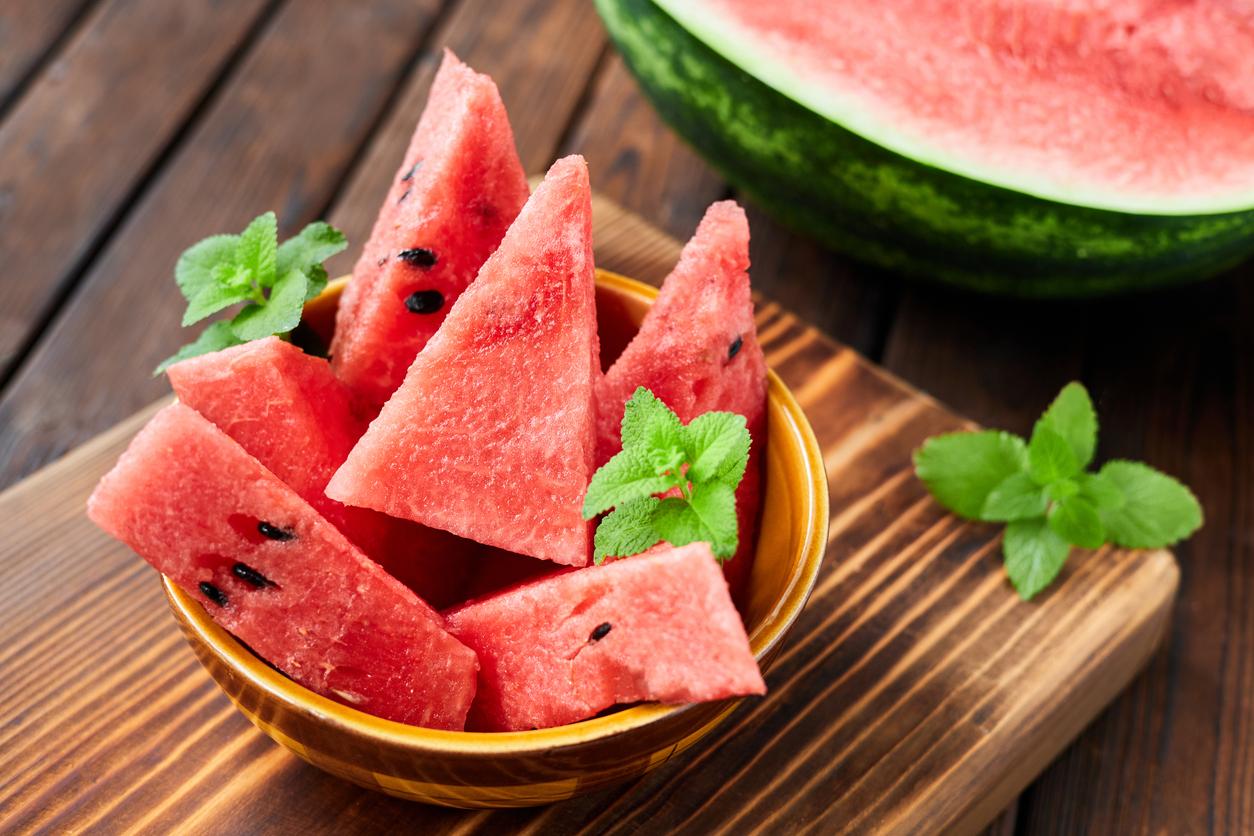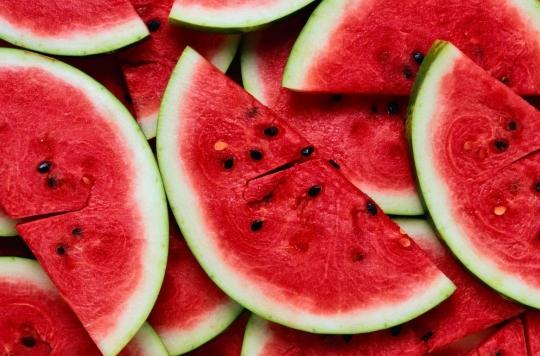|
From October 9 to 13, 2007, nearly 300 experts gathered in Houston, Texas to participate in the International Symposium on the health effects of fruits and vegetables, FAV Health 2007. PasseportSanté.net informs you of the latest research that could influence the content of your plate. |
HOUSTON (PasseportSanté.net) October 16, 2007 – Although not yet considered a superfood, watermelon – or watermelon – looks like a versatile fruit to include in a healthy diet.
Far from giving into horror stories like its famous namesake, researcher Stephen King has developed an approach that aims to determine the overall health benefits of fruits and vegetables, rather than a single nutrient.
Researcher Jennifer Waters and he, both from the Department of Horticulture at Texas A&M University, focused on the multiple properties that watermelons have.
According to their laboratory analyzes, watermelon is the food richest in lycopene, the most powerful antioxidant in the carotenoid family. It would contain, on average, 60% more than the tomato! According to their results, one serving of watermelon contains the equivalent of 108% to 162% of the daily amount of lycopene required to prevent breast cancer. And from 903% to 1,885% of the ration needed each day to act against prostate cancer!
Already, watermelon is believed to contain an amino acid – phenylalanine – whose action can protect against Parkinson’s disease. In fact, one serving of watermelon (304g or 2 cups) contains up to 23% of the daily dose required to have a protective effect against this disease.
|
Do you know that… |
To a lesser extent, watermelon also contains significant amounts of B-cryptoxanthin which can help prevent stomach and oral cancer, magnesium which helps reduce the intensity of migraines, and vitamin C.
“We have identified 24 body functions that are likely to benefit from regular consumption of watermelon, which leads us to believe that this fruit – and many others – should be appreciated from a prevention perspective. global disease, ”said Jennifer Waters.
Martin LaSalle – PasseportSanté.net
1. King S., Watermelon Breedong and VFIC, Partnership News, Vegetable and Fruit Improvement Center, Texas A&M University, March 2006, pp. 1, 2 and 5: http://vfic.tamu.edu. [Consulté le 16 octobre 2007].













